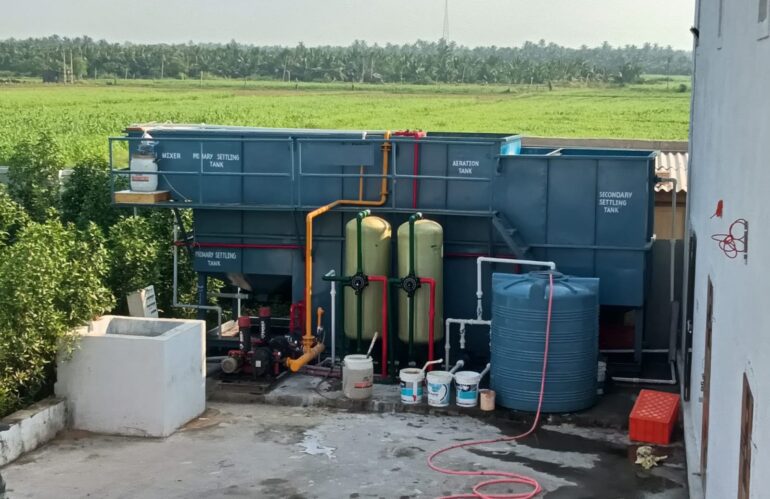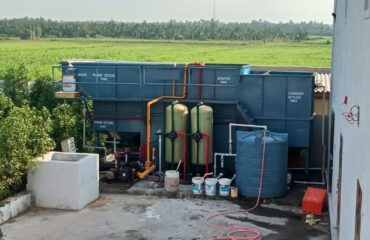Introduction:
In recent years, the pharmaceutical industry in Indore has witnessed remarkable growth and development. With the expansion of production facilities, the industry faces increasing challenges related to the management and treatment of wastewater generated during the manufacturing processes. To address this concern and ensure compliance with environmental regulations, pharma companies are adopting Sustainable Treatment Plant (STP) and Effluent Treatment Plant (ETP) systems. Amrita Water Solutions, a leading ETP STP water treatment plant manufacturer, is playing a pivotal role in supporting the pharma industry’s sustainable growth in Indore.
The Need for STP and ETP Plants: Pharmaceutical manufacturing processes involve the use of various chemicals, solvents, and active ingredients, resulting in the generation of significant quantities of wastewater. This wastewater can contain a variety of pollutants, including organic compounds, heavy metals, and other harmful substances that pose a threat to the environment and public health if not treated properly. Additionally, stringent regulations have been put in place to ensure the safe disposal of industrial wastewater. Hence, the establishment of STP and ETP plants has become a necessity for pharma companies in Indore.
Amrita Water Solutions: Leading the Way in Water Treatment: Amrita Water Solutions, a renowned ETP STP water treatment plant manufacturer, has been at the forefront of providing innovative and sustainable solutions for the pharmaceutical industry in Indore. With their expertise and state-of-the-art technologies, they have been instrumental in assisting pharma companies in implementing effective wastewater treatment systems.
Sustainable Treatment Plants (STP): Amrita Water Solutions offers advanced STP plants that effectively treat pharmaceutical wastewater. These plants utilize various treatment processes such as primary treatment, secondary treatment (activated sludge process), and tertiary treatment (filtration and disinfection) to remove contaminants and ensure the quality of treated water meets regulatory standards. The treated water can then be safely discharged into water bodies or reused for non-potable purposes, minimizing the environmental impact.
Effluent Treatment Plants (ETP): Amrita Water Solutions’ ETP plants are designed to treat and purify the effluents generated during pharmaceutical manufacturing processes. These plants incorporate physicochemical treatment methods, such as coagulation, flocculation, sedimentation, and biological treatment, to efficiently remove pollutants from the wastewater. The treated effluent can then be safely discharged or recycled for various non-potable applications, reducing water consumption and conserving valuable resources.
Benefits of Amrita Water Solutions’ STP and ETP Plants:
- Regulatory Compliance: The STP and ETP plants provided by Amrita Water Solutions ensure that pharma companies meet the stringent environmental regulations regarding wastewater discharge, safeguarding their compliance status.
- Environmental Protection: The effective treatment of pharmaceutical wastewater prevents contamination of water bodies and soil, preserving the local ecosystem and protecting public health.
- Resource Conservation: By recycling and reusing treated water, Amrita Water Solutions’ plants help pharma companies reduce their freshwater consumption and alleviate the strain on local water sources.
- Cost Savings: Implementing STP and ETP plants can lead to significant cost savings by minimizing the need for costly external wastewater disposal services and reducing water consumption expenses.
Conclusion:
The pharmaceutical industry in Indore is increasingly recognizing the importance of sustainable water management and wastewater treatment. Amrita Water Solutions, as a trusted ETP STP water treatment plant manufacturer, has been pivotal in supporting this transition. Their advanced STP and ETP plants offer effective and eco-friendly solutions to address the wastewater treatment needs of pharma companies in Indore. By implementing these plants, the industry can ensure compliance with environmental regulations, protect the local ecosystem, conserve valuable resources, and contribute to a sustainable future.






